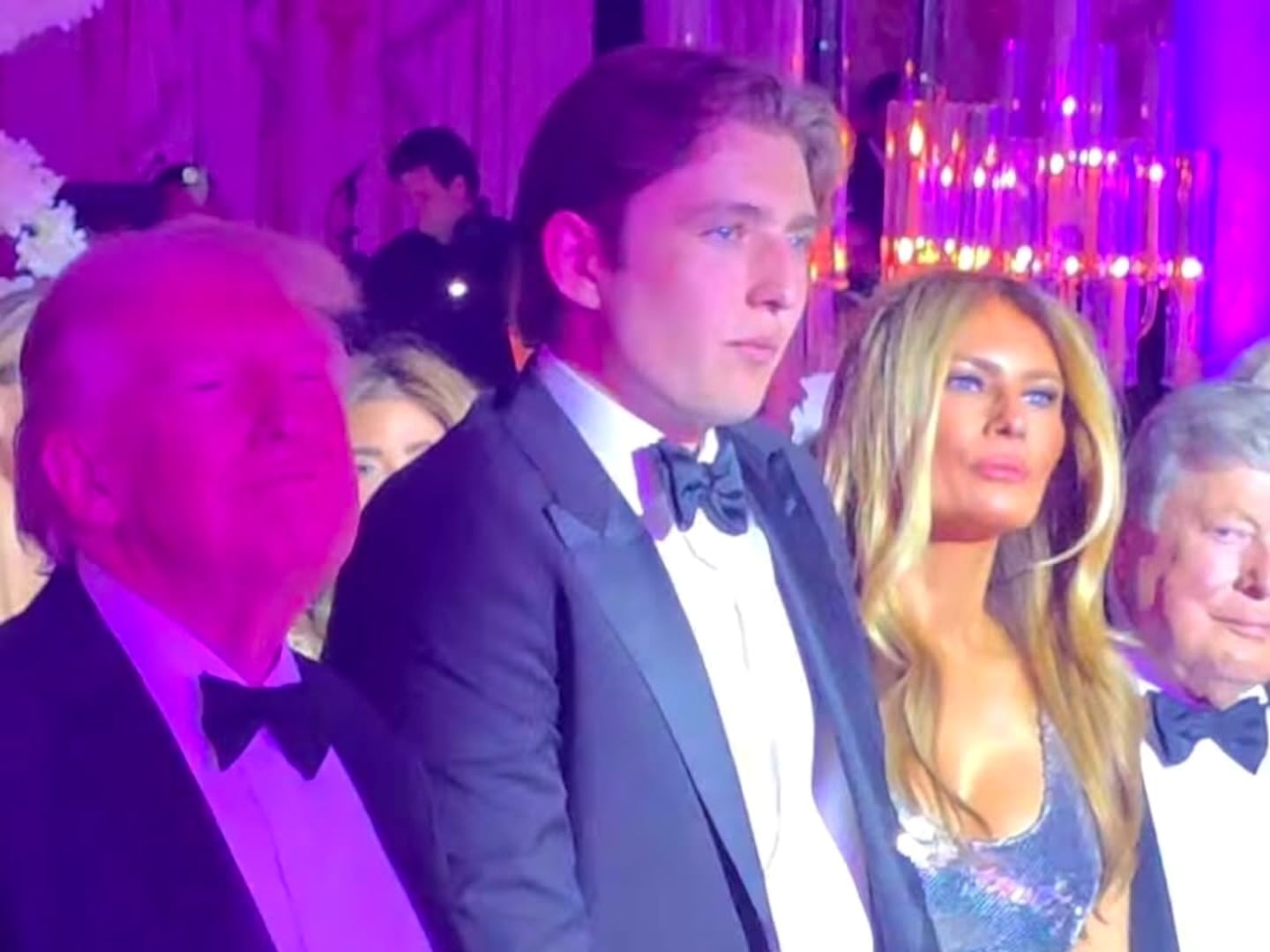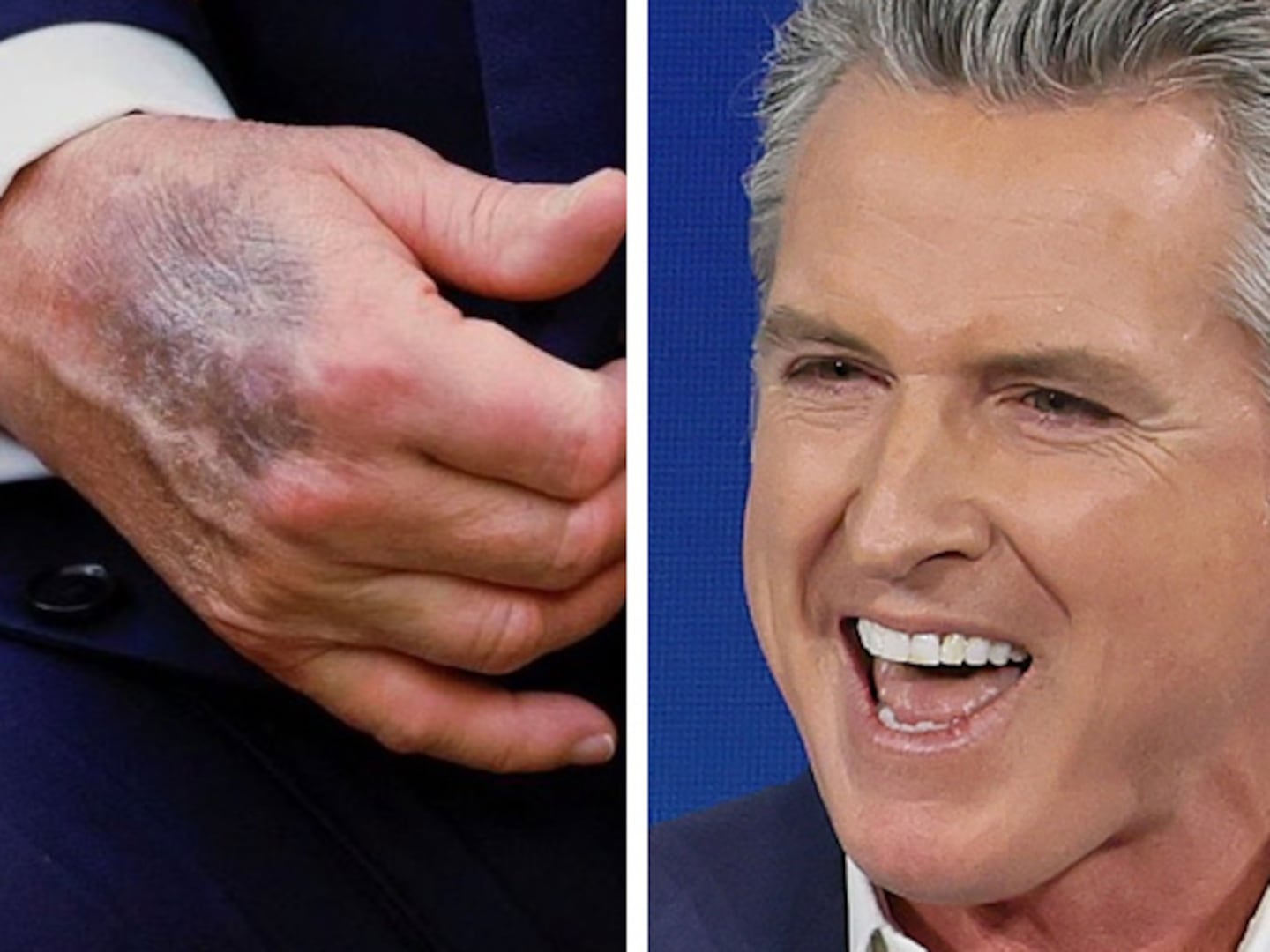People will argue about which Republican presidential candidate came out on top in Wednesday night’s CNBC debate in Boulder, Colorado, but it was pretty clear who lost.
The mainstream media—as represented by the business cable network’s principal moderators, Carl Quintanilla, Becky Quick, and especially John Harwood—took it on the chin as candidate after candidate, to hearty applause from the partisan audience at the University of Colorado, pointed out that their questions were inaccurate, unfair, or otherwise plain silly.
“Are we truly talking about fantasy football?” New Jersey Gov. Chris Christie demanded after Quintanilla asked former Florida governor Jeb Bush whether the online sports industry should be regulated as a gambling enterprise by the federal government.
“Seriously,” Christie continued, noting that the topic was hardly worthy of a presidential debate, where issues of war and peace, the runaway deficit, and the economy should be center stage. It was difficult to disagree with him.
“How about this?” Christie proposed. “Enough of fantasy football!” (Bush, by the way, missed an opportunity to make the same powerful argument, instead answering the question by boasting that his own fantasy football team was 7-0.)
For the largely Republican audience, loudly sympathetic to the White House wannabes, Harwood quickly assumed the role of biased lamestream media scoundrel by asking billionaire reality TV mogul Donald Trump, right out of the box: “Mr. Trump, you have done very well in this campaign so far by promising to build another wall and make another country pay for it, send 11 million people out of the country, cut taxes $10 trillion without increasing the deficit, and make Americans better off because your greatness will replace the stupidity and incompetence of others. Let’s be honest. Is this a comic book version of a presidential candidate?”
“No, it’s not a comic book version,” Trump fired back. “And by the way, I don’t like the way you phrased the question.”
Neither, it seemed, did anybody else. Watching from home, I thought the phrasing of Harwood’s question—even though I like Harwood personally—was a textbook case of what cultural conservatives believe is the arrogant elitism of inside-the-Beltway political journalists who initially dismissed the Republican frontrunner as a circus clown and have been confidently predicting his swift demise for the past 100 days.
After a series of combative, arguably undermining, questions posed by the moderators to the Republican contenders, Texas Sen. Ted Cruz neatly and rather brilliantly summarized what sounded perilously close to a reasonable complaint:
“Let me say something at the outset. The questions that have been asked so far in this debate illustrate why the American people don’t trust the media. This is not a cage match. And if you look at the questions—Donald Trump, are you a comic book villain? Ben Carson, can you do math?... Marco Rubio, why don’t you resign? Jeb Bush, why have your numbers fallen?”
Cruz demanded, to a deafening cheer from the crowd, “How about talking about substantive issues?”
Addressing Quintanilla, Cruz went on: “Carl, I’m not finished yet. The contrast with the Democratic debate, where every thought and question from the media was ‘Which of you is more handsome and wise?’”
At this point, given the grievous injuries inflicted on Team CNBC by Cruz’s quite reasonable characterization of the debate dynamic, the only thing left to do was to shoot the wounded.
Sensing weakness, the candidates proceeded to run roughshod over the moderators for the duration of the debate, ignoring their instructions to stop talking and adhere to previously agreed-upon time limits.
And who could blame them?
When Rand Paul asked for the rules about who was allowed to respond to a rival candidate’s statement, Quick informed him, “It’s at the discretion of the moderators.”
It was not an answer guaranteed to instill the participants’—or, for that matter, the viewers’—confidence in the fairness and balance of the occasion.
Speaking of which, Fox News, unsurprisingly, had a field day with CNBC’s treatment of the candidates.
“This is the most appalling performance by the moderators,” Charles Krauthammer opined, “that I can ever remember seeing.”
Republican talking point virtuoso Sean Hannity declared: “The candidates combined beat the moderators, who were taking the Democratic Party line.”
“This a horrible night for the news media,” Hannity added—and, for once, I agreed with him.
The trouble started with the very first question, Quintanilla cutely asked each candidate, as though they were in a job interview, to admit to a weakness of character or somesuch.
It was a gimmicky and rather puerile inquiry, of course, and predictably few of the contenders even bothered to address it. Bush conceded he was probably a little too impatient. Trump claimed he was a little too trusting, and then bitterly unforgiving when betrayed. Carly Fiorina—grinning winsomely for laughs—revealed she was advised to smile more during debates.
Quick, meanwhile, got blindsided when she asked Trump about something he supposedly said about Facebook chief Mark Zuckerberg’s immigration policies, and Trump told her he never said it.
“So where did that come from?” Quick pleaded lamely.
“I don’t know. You people write this stuff,” Trump retorted, to laughter.
Harwood, who also writes for The New York Times, came in for particular criticism from the candidates—and with justice. He came across as a sort of grand inquisitor and took on the severe and scolding tone of an irritated headmaster with candidates who spoke beyond their 60-second allotment.
“John, do you want me to answer or do you want to answer?” Christie chided after Harwood interrupted him. “Gotta tell ya, even in New Jersey what you’re doing is called ‘rude.’”
Toward the end, when each contender was invited to deliver a 30-second closing pitch, Trump used his time to congratulate himself and Ben Carson for negotiating with CNBC to pare down the debate from 3½ hours to 2 hours “so we can all get the hell out of here.”
Trump argued that it’s just those sorts of negotiating skills that he’ll employ as president to make America great again.
“Just for the record,” Harwood felt compelled to chime in, “it was always going to be two hours.”
“That is not right,” Trump shot back, basically calling Harwood a liar. “You know that is not right.”
All in all, the night offered a harsh lesson for future debate moderators: Go ahead and pose tough questions, but get your facts straight, don’t be snarky, and don’t, on any account, debate the pros.






